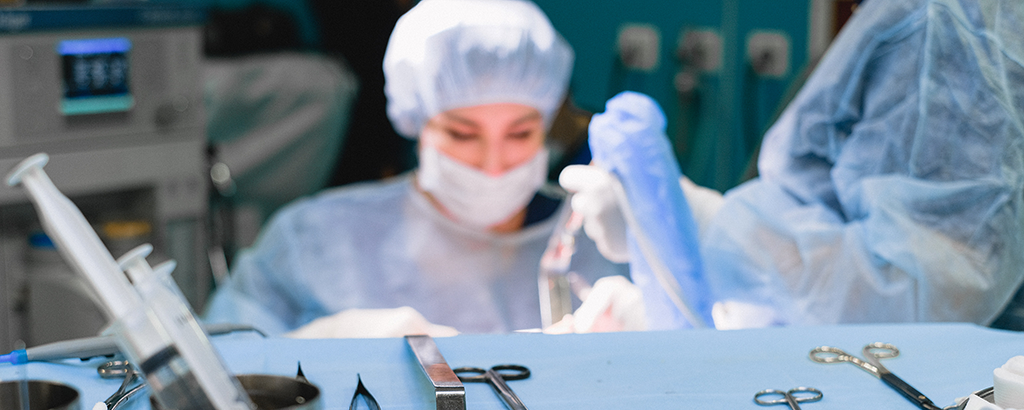Press Release
Mar 4, 2021
Dermatologists warn of risks to medics from HPV, COVID, and other viruses in surgical smoke

The British Association of Dermatologists (BAD) is calling for smoke extractors to be available in all settings where dermatology surgery takes place, following growing concern that surgical smoke plume can transmit viral infections such as HPV. The organisation is also calling for further occupational health research into the risks of viruses being carried from patient to healthcare professionals through surgical smoke.
Surgical smoke is formed during surgical procedures that use lasers or cauterisation to destroy skin tissue. As the skin tissue is destroyed, viral particles are aerosolised, remaining suspended in smoke, which can then be breathed in by healthcare professionals.
Dermatologists are spending a larger proportion of their week in the operating theatre than ever before, meaning the risks of catching viral infections have increased. Viral DNA has been observed on the face of surgeons following operations wherein surgical smoke was present.
The viruses which are thought to pose the biggest long-term health concern, include:
- Human papillomavirus (HPV)
- Merkel cell polyomavirus (MCPV)
- COVID-19 – though the risk is currently reduced by the current widespread use of personal protective equipment (PPE)
HPV infection has been shown to be a necessary component in the development of all cervical cancers, as well as a proportion of other genital cancers. The infection is also a contributing element in head and neck squamous cell carcinomas (HNSCCs), especially oropharyngeal, tonsillar and laryngopharyngeal cancers.
Concern over the severity of the issue has been growing over the last 30 years and while the threat of COVID-19 transmission has encouraged hospitals to widely adopt PPE, the BAD is calling for the use of appropriate PPE for all surgeries where surgical smoke is present, to prevent transmission of viral infections.
Professor Nick Levell of the British Association of Dermatologists commented:
“In our hospitals, all kinds of precautions are taken to reduce the risks of cross infection. However, despite being aware of the potential risks for 30 years, surgeons are still breathing in smoke generated by human tissue, along with any viral particles present in the skin.
“Recent data reviews by the Centers of Disease Control and Prevention (CDC) and Health and Safety Executive (HSE) have found that the number of healthcare professionals known to have developed a HPV-associated disease is small, however, there are concerns that this is severely under-reported issue due to the fact that HPV can lie dormant in the body for decades. We are aware of reports of head and neck infections, including cancers, in specialists from ENT surgery, gynaecology, and dermatologists specialising in genital disease.
“More research must be done looking into this issue as an ever-increasing number of dermatologists find themselves in the operating theatre day-in-day-out. We are also urging hospitals to ensure that appropriate PPE and smoke extractors are available for use in all surgeries where surgical smoke may be generated.”
Editor’s Notes
The full position statement from the British Association of Dermatologists on the risk of cancer from viral particles in surgical plume can be viewed here.
For more information contact harriet@bad.org.uk or call 07769000415
About the British Association of Dermatologists The British Association of Dermatologists is the central association of practising UK dermatologists. Our aim is to continually improve the treatment and understanding of skin disease. For further information about the charity, visit www.skinhealthinfo.org.uk